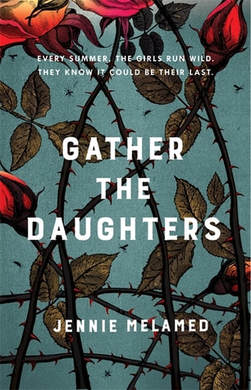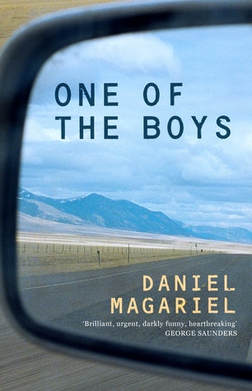Gather the Daughters by Jennie Melamed
Vanessa, daughter of a wanderer with a love of books, relishes her relative privilege, but the glimpses of other worlds in her father’s library isn’t enough to free her mind from the lies she’s imbibed since infancy. If rebellion is to come it will be through Janey, at seventeen older than most new mothers, who has managed to delay puberty by a regime of self-starvation. But can the girls hold out against the power of their fathers? Is the suspicion that all is not as it seems enough to point the way out?
With multiple characters and a necessary world-building, it took me a little time to fully appreciate this novel’s merits. But from midway I was hooked and full of admiration for the author’s plotting and prose. I particularly liked the understated manner in which the reader is appraised of the more horrific aspects of the culture: fathers penetrating their prepubescent daughters (because of course they must fuck someone and with a need to control the population in the absence of birth control they stop doing it with their wives after the regulation two children); the public “shaming” for misdeeds turning into a vicious lashing.
While obviously about misogyny, what struck me most was its illustration of the difference between education and schooling, and how religion controls not only what we do that what we are able to think. With echoes of The Handmaid’s Tale in its convincing portrait of a misogynist theocracy (are there any other kinds of theocracy, I wonder?), The Lord of the Flies in the gangs of over disciplined children going feral and A Song for Issy Bradley in its exploration of indoctrination stunting adolescent minds, Gather the Daughters is an impressive debut and timely reminder of the continuing need to draw attention to the subjugation of women by the patriarchy. Thanks to Tinder Press for my review copy.
One of the Boys by Daniel Magariel
I don’t often picture the characters of the book I’m reading but halfway through this short novel, which I read in an evening, I recognised the man-child in my mind as the current father figure of the USA. The unpredictability. The mood swings. The misogyny. The threat of violence and the absence of filter between mind and mouth. And the people love him. Need I say more?
Will the boys recognise the harm he is doing in time to escape? Is there anywhere to run to when they don’t trust the authorities and their mother isn’t a whole lot better? While I’d have appreciated more fleshed-out characterisation and subplot, the concentration on the father-son relationships means there’s no escaping the pain of their predicament. Sadly, this is the reality for some children: growing up loving and admiring their abuser even when they fear him, because there is no-one else. A disturbing story for disturbing times, and a much bleaker perspective on masculinity than the one Stephen May gives us in Stronger Than Skin. Thanks to Granta Books for my review copy.























 RSS Feed
RSS Feed





















